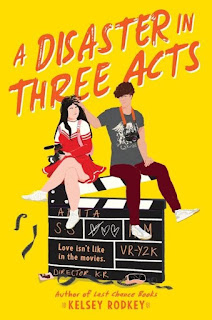Unraveller
By: Frances Hardinge
Location: FIC HAR
Genre: Fantasy. Horror, Magic
In a world where anyone can cast a life-destroying curse, only one person has the power to unravel them.
Kellen does not fully understand his unique gift, but helps those who are cursed, like his friend Nettle who was trapped in the body of a bird for years. She is now Kellen's constant companion and his closest ally.
But the Unraveller carries a curse himself and, unless he and Nettle can remove it, Kellen is a danger to everything – and everyone – around him . . .
Natalylta recommends...
It’s wonderful that in a story about unravelling - curses, yes, but also the tangled webs of resentment and hate and pain - Frances Hardinge instead weaves a very complex and deeply nuanced tale with a whole onion-worth of layers.
This is a story for which it’s hard to give an “elevator pitch”, a deft distillation of ideas and themes in a few pithy sentences. It’s too complex for it, and its characters are layered and messy and difficult, and full of wonderful contradictions and sharp corners. And the brilliantly fantastic worlds of Hardinge’s imagination resist the soothing simplicity of stark binary contrasts, instead showing (always showing, never telling) the lived-in ambiguity of reality, however fantastic it might be.
“My hosts started to realize that just because somebody *feels* wronged, that doesn’t mean they are.”
Unraveller is a story with so much plot that never lulls and yet never feels rushed. It’s rooted in the ideas of strong friendship and responsibility, the subtle but extremely important distinctions between anger and hate, and recognition that there are at least two sides to every story, and what you believe isn’t always true. It is about the importance of thinking for yourself and asking questions, even when painful and uncomfortable, and questioning assumptions, and thinking about the consequences. It’s a story about learning to deal with your pain, and not in the easy way. And it’s a story about the power of understanding and empathy, and the heavy weight of guilt.
“I think anger’s alright, actually. Lots of you have been treated badly, and most of you never asked for any of this. But… hate’s different. It eats you up and makes everything worse. You’ve all suffered enough already, haven’t you?”
Frances Hardinge is without a doubt among my absolutely favorite writers, and her books are always a delight and pure pleasure. Not only is she excellent with words and is able to create brand-new fully fleshed worlds that are fresh and feel vividly real, but she also does what I wish every writer felt comfortable doing. She trusts her readers. She trusts us to understand subtleties and nuances and to make our own conclusions without ever hitting us over the head with any anvil-sized messages. She’s too skilled for that. She trusts us to think — actually, she *expects* us to do that. And for that I love her works. She makes her writing feel effortless — and that’s the skill to be admired.
“Even if you didn’t dwell on the past, however, sometimes the past dwelt on you. Sometimes it remembered you and came after you for revenge.”
—————
“Gentleness is often mistaken for weakness, but the two are not even close cousins.”
It’s “middle grade” literature, which is ridiculous. Hardinge writes more than suitably for adults, but these are also stories that you can hand to a young reader without cringy embarrassment for your book tastes. Young age of her characters does not detract from the high level of clever complexity, but does - thank all the literary deities - end up romance-proof, which at least to me is a welcome reprieve of the easy storytelling trends that lets us because they sell. This book is carried on the strength of its story, not on the whiff of hormones, and it’s wonderful.
“The rest aren’t bad people. They’re just desperate and wounded, putting their faith in the first person who told them they weren’t monsters.”



Comments
Post a Comment